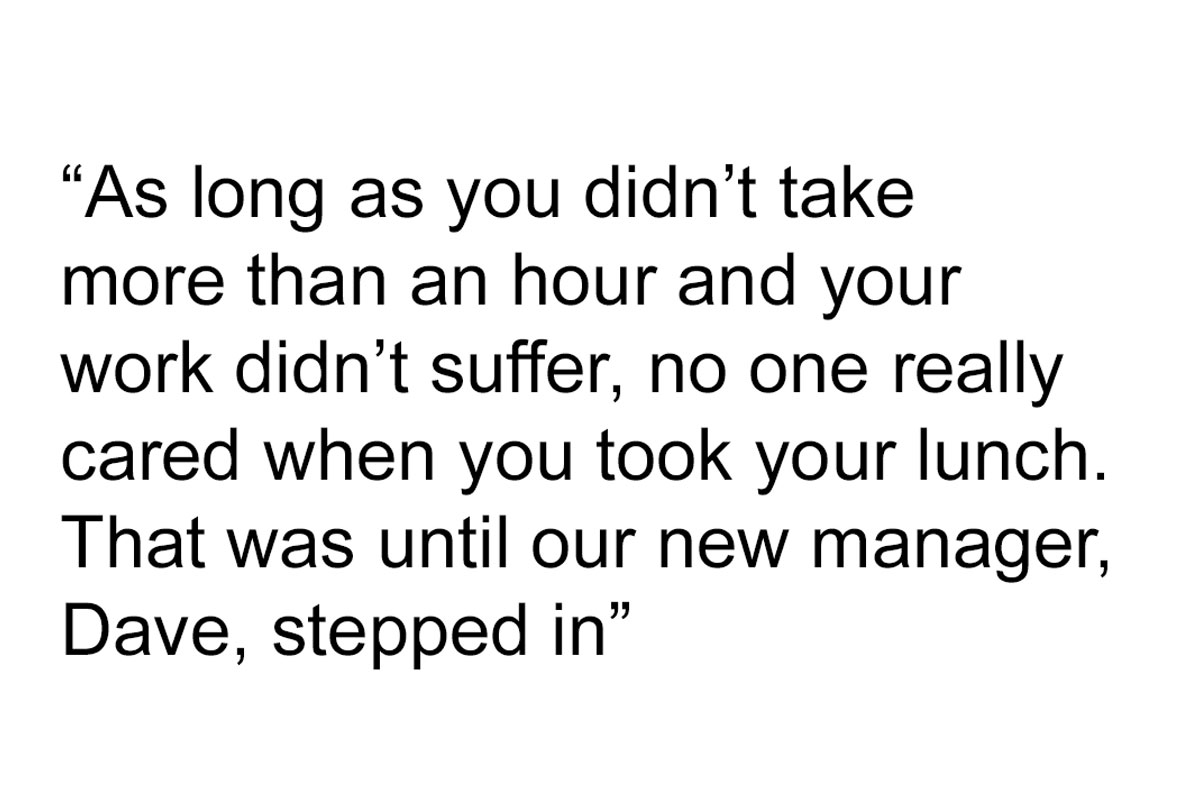
“Micromanaging My Lunch Break? Enjoy The Extra Paperwork”: Worker Finds A Genius Way To Make New Manager Regret His Strict Lunch Schedule
Recently a person shared an incident from his former workplace run by a boss who was the definition of a micromanager.
In a post that amassed 11.8k upvotes on the Malicious Compliance community, the Redditor explained how the new manager Dave stepped in to lead the team. Turns out, Dave was seriously displeased with the fact that employees would take their lunch breaks as they pleased, as long as it wasn’t longer than an hour and their work allowed it.
“Dave decided that he needed to control when everyone took their lunch breaks,” the author said, so he had no choice but to maliciously comply.
A new boss tries micromanaging their employees’ lunch breaks only to get served with more paperwork and overtime pay requests
Image credits: Ksenia Chernaya (not the actual photo)
Image credits: Arina Krasnikova (not the actual photo)
Image credits: CriticalDepth420
While research shows that taking lunch breaks benefits employee productivity and well-being, many of them hesitate to take them
While a huge body of research shows how taking lunch breaks benefits employee performance, this survey revealed that not only are they getting shorter, but many employees fear being judged for taking them.
The Take Back the Lunch Break survey findings showed that workers who take their lunch break show higher levels of engagement than those who didn’t. Moreover, a whopping 94% of workers said they feel happier when they take their lunch break.
But the findings from The Lunch Report revealed that a quarter of Gen Z and millennial workers do not feel comfortable taking their lunch breaks because they are worried about what their managers will think.
Similarly, 21% of workers said they don’t have enough time for a proper break and 19% said that they have too many meetings or tend to have meetings during lunch hour.
Although federal law does not require lunch or coffee breaks, it’s a common practice for companies to offer meal periods for their employees but they’re usually unpaid
According to the US Department Of Labor, federal law does not require lunch or coffee breaks. However, when employers do offer short breaks (usually lasting about 5 to 20 minutes), federal law considers the breaks compensable work hours that would be included in the sum of hours worked during the workweek and considered in determining if overtime was worked.
Meanwhile, unauthorized extensions of authorized work breaks need not be counted as hours worked when the employer has expressly and unambiguously communicated to the employee that the authorized break may only last for a specific length of time, that any extension of the break is contrary to the employer’s rules, and any extension of the break will be punished.
On the other hand, meal periods (typically lasting at least 30 minutes) serve a different purpose than coffee or snack breaks and, thus, are not work time and are not compensable.
The author later shared more information in the response to these comments
Many people expressed their support for the OP
Christmas time. US Post Office. 4:30pm. Line out the door. Guy working the counter asks the boss lady standing beside him if he is approved to work overtime or should he leave? The boss lady didn't answer and she started to walk away! The guy says in a louder voice, "These people in line want to know if I can help them". The lady said yes then practically ran to the back room. It was great to witness. You could tell that the boss lady gave the employees grief and was called out in front of everybody. Malicious compliance at its best!
If your first thought when being put in charge of an existing team is: 'they're all going to try to take advantage of my lack of knowledge of their operations and walk all over me' then you're already failing them as a manager. The appropriate approach is to think: what has made them successful so far, and how can I help them to be even more successful?
Management should be required to watch the movie "Road House," take notes, and summarize what they learned. For example: Day 1: Do nothing, just observe the regular routine. Take mental notes of what you see. Day 2: Study said notes. Research present productivity BEFORE making changes. Simple, right?
Christmas time. US Post Office. 4:30pm. Line out the door. Guy working the counter asks the boss lady standing beside him if he is approved to work overtime or should he leave? The boss lady didn't answer and she started to walk away! The guy says in a louder voice, "These people in line want to know if I can help them". The lady said yes then practically ran to the back room. It was great to witness. You could tell that the boss lady gave the employees grief and was called out in front of everybody. Malicious compliance at its best!
If your first thought when being put in charge of an existing team is: 'they're all going to try to take advantage of my lack of knowledge of their operations and walk all over me' then you're already failing them as a manager. The appropriate approach is to think: what has made them successful so far, and how can I help them to be even more successful?
Management should be required to watch the movie "Road House," take notes, and summarize what they learned. For example: Day 1: Do nothing, just observe the regular routine. Take mental notes of what you see. Day 2: Study said notes. Research present productivity BEFORE making changes. Simple, right?

 Dark Mode
Dark Mode 

 No fees, cancel anytime
No fees, cancel anytime 







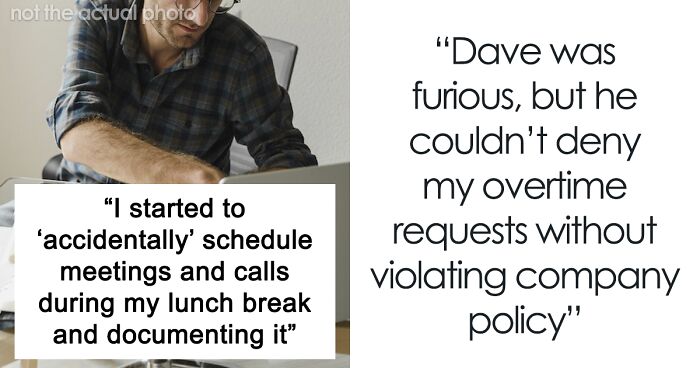





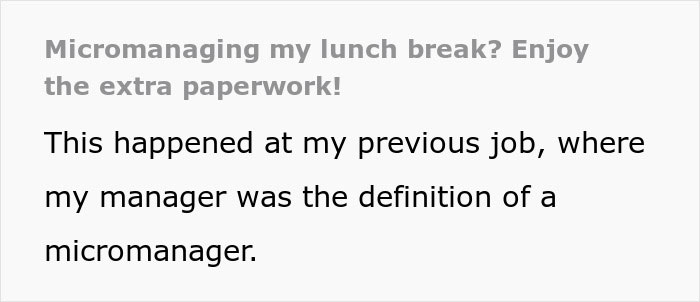

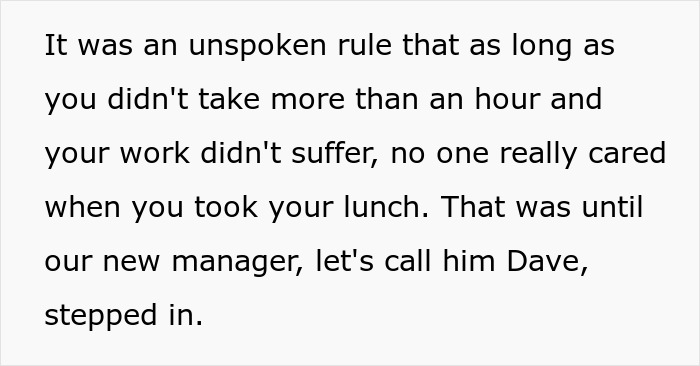
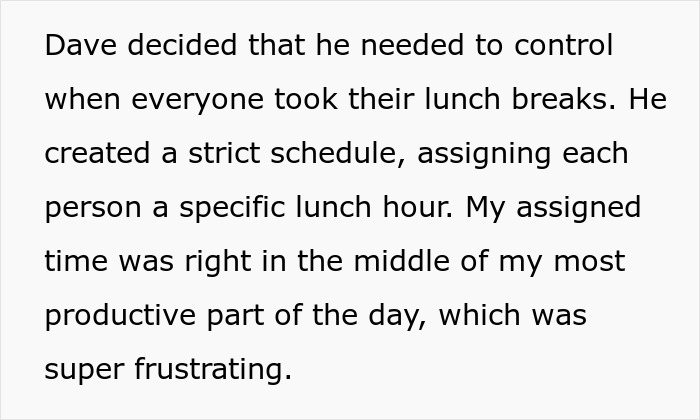

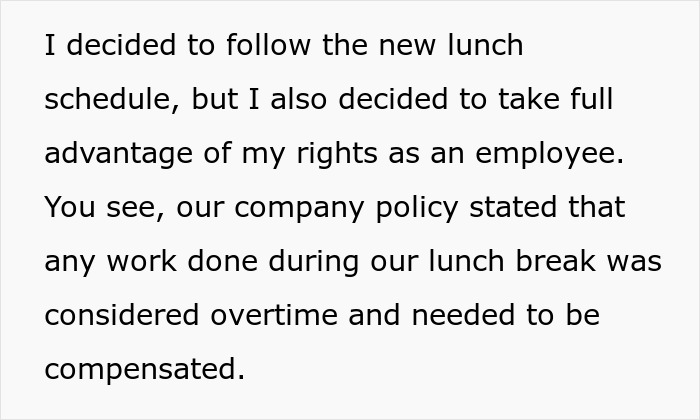
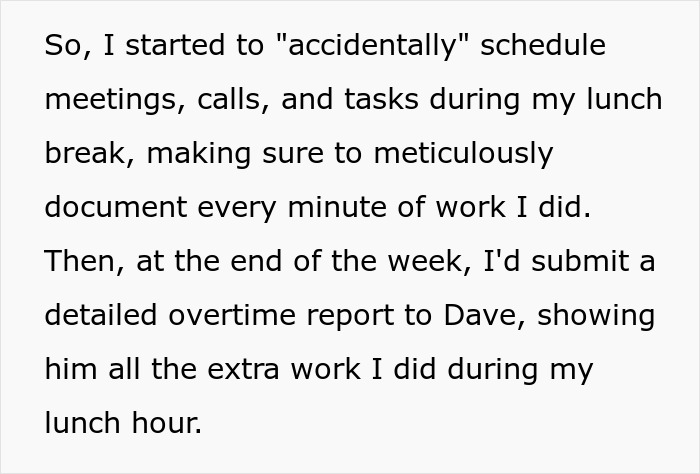
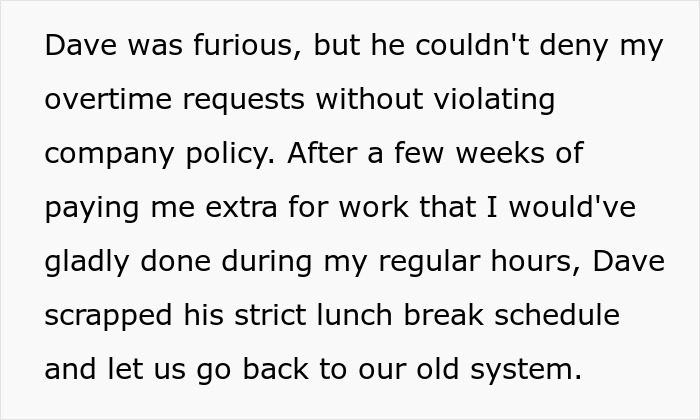
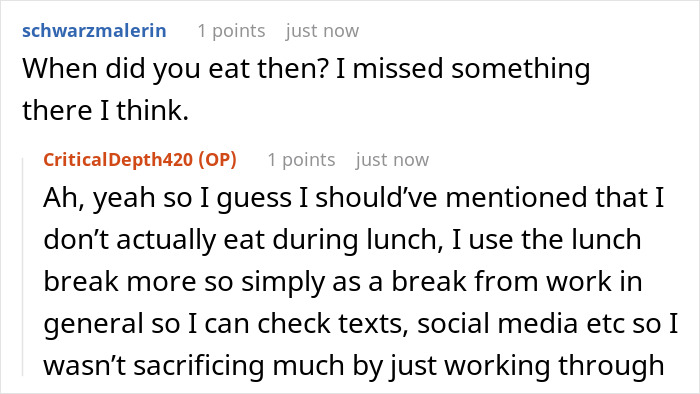
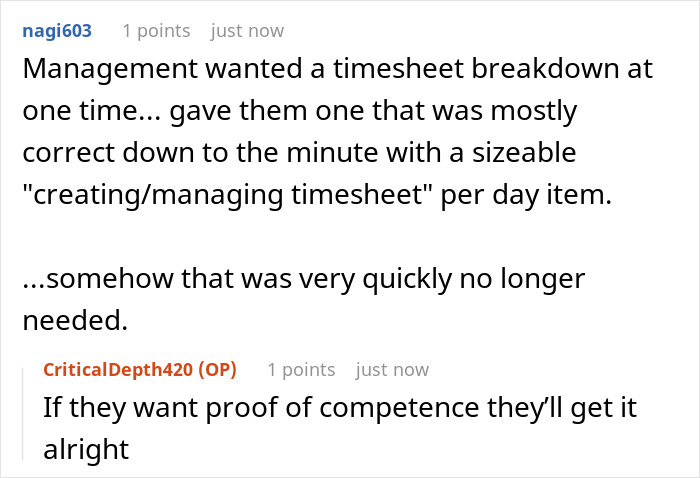
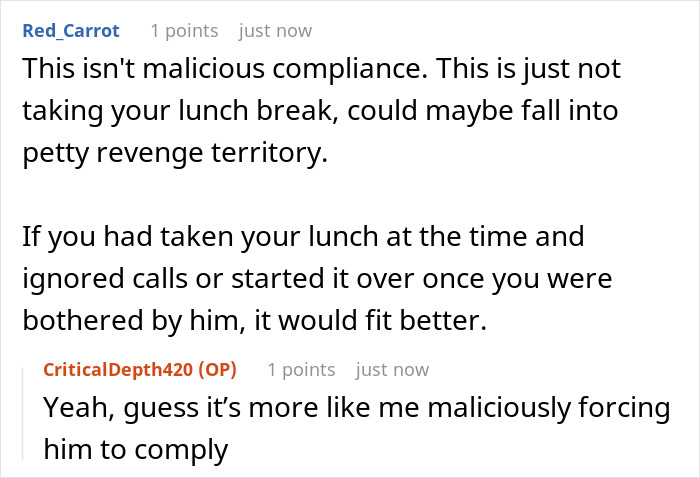




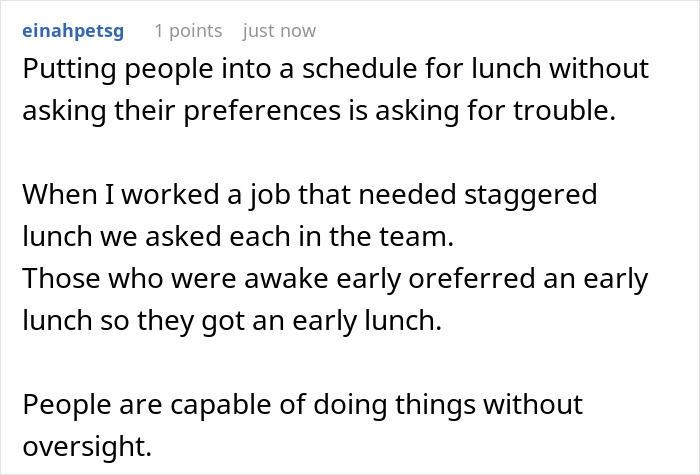
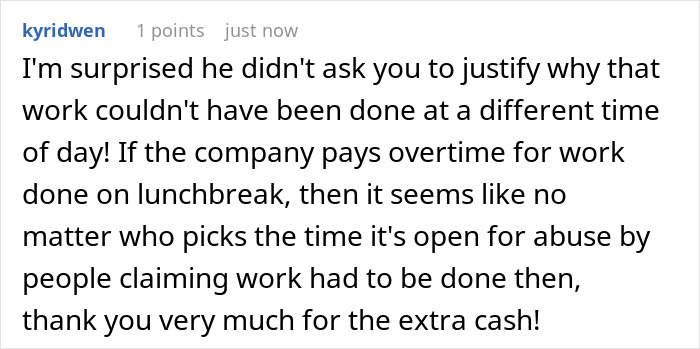
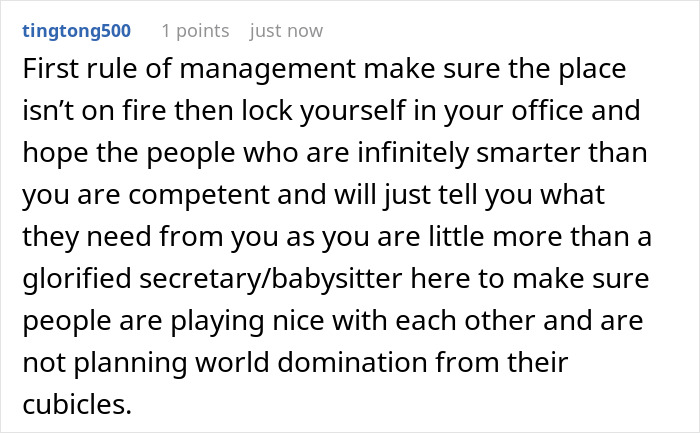

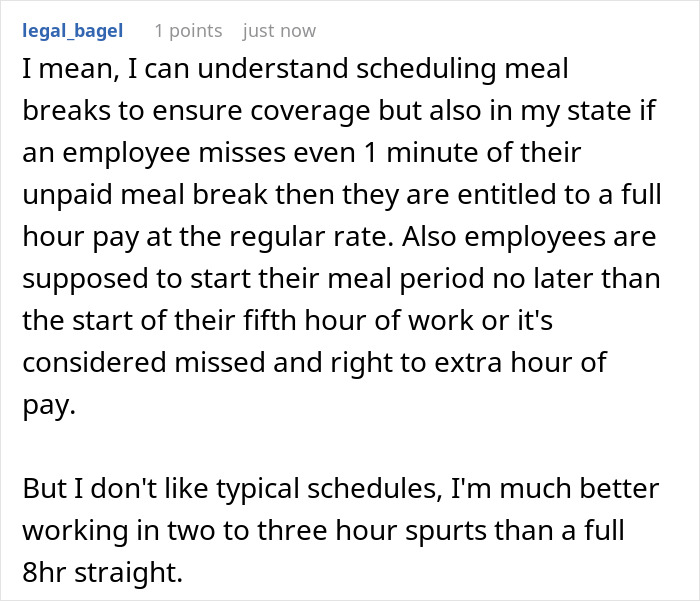

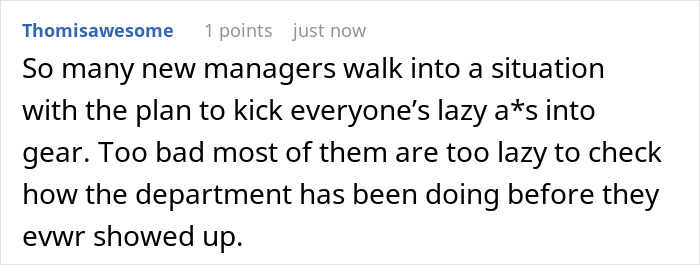








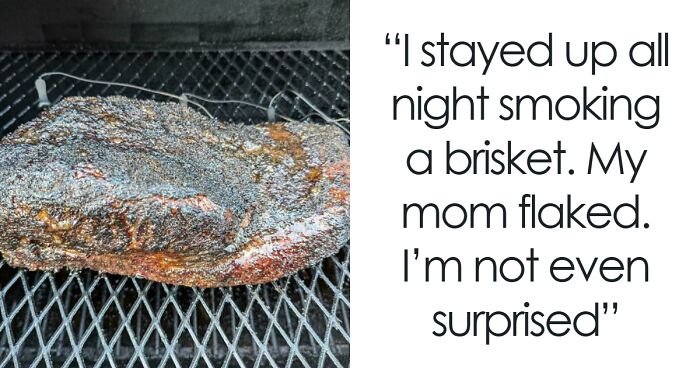




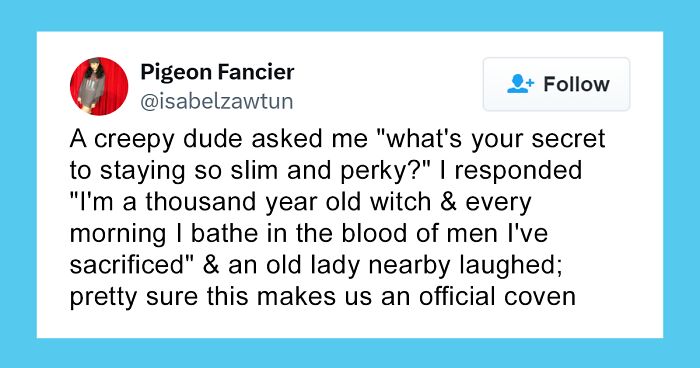
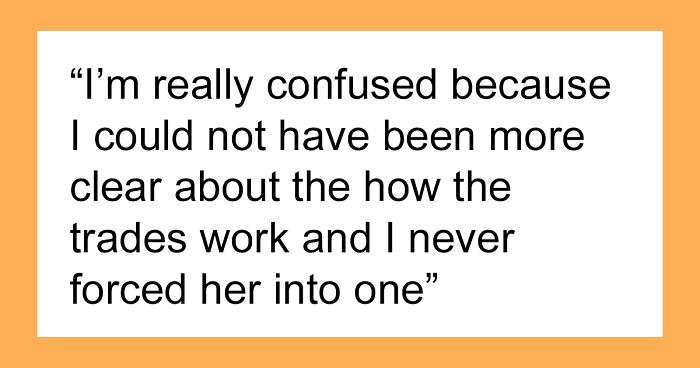

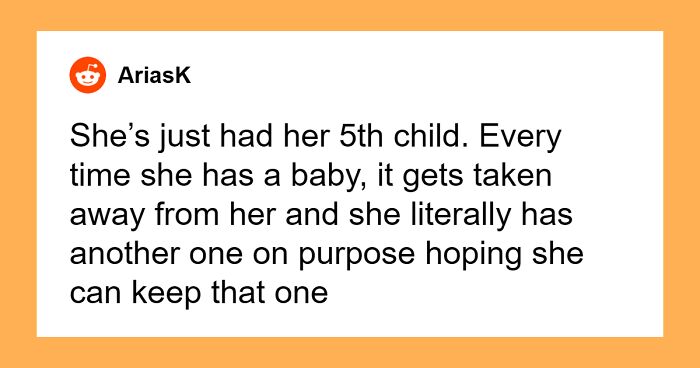









70
16